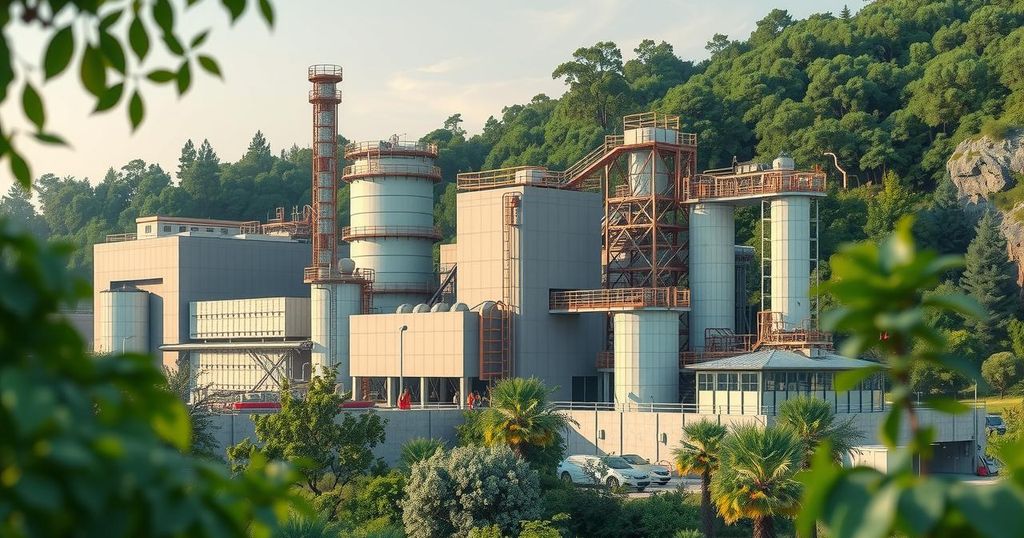Nigeria to Launch Two Major Lithium Processing Plants This Year

Nigeria plans to launch two lithium processing plants this year, valued at $800 million. The move reflects a pivot from exporting raw minerals to pursuing value-added processing. Funded mainly by Chinese companies, the plants represent a strategic shift in Nigeria’s mining policy to enhance economic value domestically.
Nigeria is gearing up to inaugurate two significant lithium processing plants this year, aiming to enhance its mineral processing capabilities and reduce reliance on raw mineral exports. One of these facilities, a $600 million operation, is set to open near the Kaduna-Niger border, while a $200 million refinery is nearing completion near Abuja. This move is part of the government’s broader strategy to leverage the country’s abundant lithium resources responsibly.
The announcement was made by Dele Alake, Nigeria’s mining minister, who indicated that the Kaduna plant will be commissioned this quarter. Additionally, he disclosed plans for two more lithium plants to commence operations in Nasarawa state before the end of the third quarter in 2025. These developments mark a crucial shift in Nigeria’s approach to its mineral wealth, moving from merely exporting unprocessed minerals to focusing on value-added processing.
“We are now focused on turning our mineral wealth into domestic economic value – jobs, technology, and manufacturing,” Alake stated, underscoring the government’s intent to create a sustainable mining industry. More than 80% of funding for these four plants is reported to originate from Chinese companies such as Jiuling Lithium Mining Company and Canmax Technologies, with local investors, Three Crown Mines, retaining the remainder of the stakes.
Lithium’s increasing demand, particularly in electric vehicles and other green technologies, has made it a valuable commodity. A study from Nigeria’s Geological Survey Agency in 2022 revealed significant deposits of high-grade lithium across multiple states, sparking global interest. In fact, last year, Kaduna State chose China’s Ming Xin Mineral Separation Nig Ltd. to construct Nigeria’s inaugural lithium processing plant, with long-term goals to manufacture batteries for electric vehicles.
The Nigerian government has firmly communicated its intent to control the value chain of its mineral resources. A noteworthy instance of this new approach occurred in 2022 when the government declined a proposal from Tesla for the purchase of raw lithium, asserting that such a deal contradicts Nigeria’s updated mining regulations.
Ongoing reforms are aimed at formalising artisanal mining, banning the export of unprocessed minerals, and setting up a state mining firm allowing for significant foreign investment. This marks a critical step in reshaping Nigeria’s position in the global mining industry, pivoting towards processing and manufacturing rather than just extraction.
In summary, Nigeria’s plans to open two lithium processing plants mark a significant shift towards domestic value addition in mineral resources. With major investments mainly from Chinese firms, the focus now is on utilizing Nigeria’s lithium deposits to create jobs and technology while rewarding local investors. This movement is grounded in new regulations aimed at turning the country into a formidable player in the global mining landscape.
Original Source: africa.businessinsider.com




